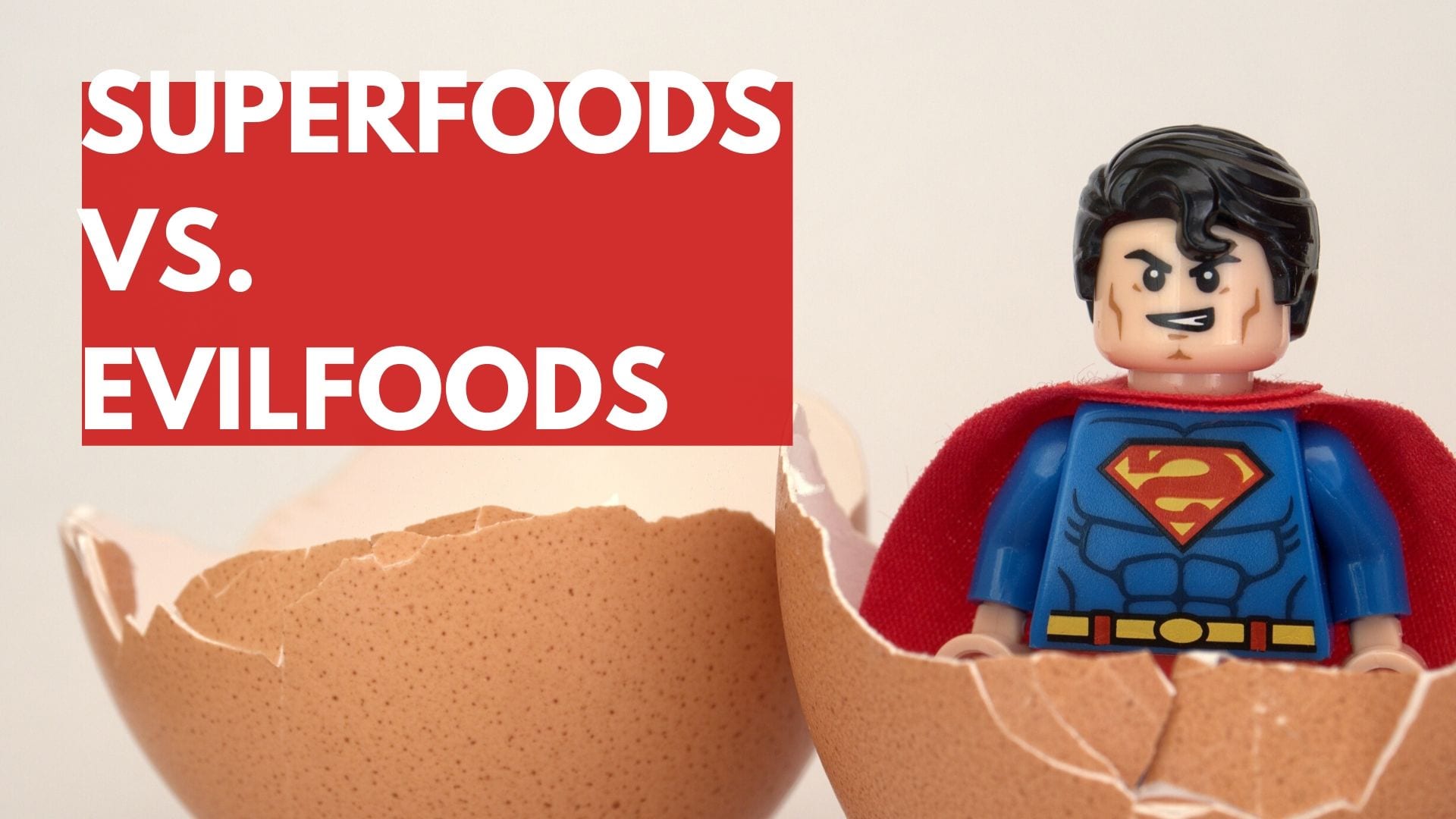
10 Sep Superfoods vs. Evilfoods
It was just two years ago that the Huffington Post delivered this amazing article: “A Glass Of Red Wine Is The Equivalent To An Hour At The Gym, Says New Study”. It was an outstanding piece of modern journalism. It finally answered the question that had been troubling nutritionists and doctors for ages: why do alcoholics and gym rats look so much alike? 🤦
All kidding aside, it was a very useful article for me as a teacher because I would use it to show my students how important it is to know how to read: not just to decipher the code of language, but to read critically and to study. In a world full of conflicting information, the ability to make sense of research might just be what keeps you from getting type 2 diabetes.
Fortunately, the Internet is a gift that keeps on giving, and just two weeks ago another great piece of controversial nutritional information made it to the headlines. Harvard Professor Karin Michaels posted a video on youtube titled: “Coconut Oil and other Nutritional Errors.” In this video professor Michaels bashed coconut oil, calling it poison. Not just once, three. times. Of course, the Internet did what the Internet does best:
All the major news sources picked up the story, reporting that Harvard says coconut oil is poison, and shit just got lost everywhere. Interestingly enough, not a single journalist asked him/herself if he or she had consumed coconut oil before, and if they were sick or alive, or what. It all ended last week when the Indian Government asked Harvard to retract these comments. In southern India, coconut oil has been consumed for centuries and it is deeply rooted in the culture and it seems like they are not getting poisoned that much by it.
To be fair to Professor Michaels, her main point was to denounce the now popular belief that coconut oil is a “superfood”. She was right in pointing out that the vast majority of claims regarding coconut oil are not substantiated by anything different from anecdotal evidence. I agree with her that the narrative of superfoods is a great marketing strategy created to so that the consumer can buy crap without thinking about it. Sure, there are foods that are dense in certain nutrients, and those nutrients might improve our health, or maybe not, but there are no magic foods–apart from mushrooms… Professor Michaels’ fatal error was that she did exactly what she was trying to criticize: but instead of creating a superhero, she created a villain.
No, coconut oil is not poison. Coconut oil is high in saturated fats, that is all. But the popular belief held by many health professionals and institutions is that saturated fat clogs your arteries and then you die of a heart attack. So Michaels did a logical inference, coconut oil kills you. Michaels unfortunately (despite working at the most famous school ever) did not do her homework. For the past 20 years, there has been study after study showing how weak the relationship between saturated fat and cardiovascular disease is. I highly recommend this editorial from the British Journal from last year nicely titled: Saturated fat does not clog the arteries: coronary heart disease is a chronic inflammatory condition, the risk of which can be effectively reduced from healthy lifestyle interventions. Read it! Go beyond this post and challenge your brain a little. Afterward if you want to know how we ended up here, believing that fat was the sure way to a heart attack you should read this: How the Ideology of Low Fat Conquered America. Michaels didn’t read articles like these, she didn’t study and question her assumptions…don’t be like Michaels.
Now, don’t get me wrong: I am not saying all fats are created equal, or that you should not be careful of which ones you consume. Quite the opposite! I urge you to start learning more about fats, as much as you can. Start here for “healthy” fats, here for so-called “bad” fats, and if you want to have a more detailed read go here. These three resources are uber basic starting points, so let them be your initiation. If you dig a little deeper, you will find that we for sure want to favor the consumption of some kinds of fats over others, but that does not mean if we eat a stick of butter we will die. Mmmmmm butter.
The lesson to take from all this is that you cannot leave information to the marketer, or to one single professor. You need to educate yourself. And I get it, it is hard to find sound sources of information in the world of Fake News. But you owe it to yourself to relentlessly look and refine your knowledge. And remember: in present-day science, all that matters is what is statistically relevant, which might say nothing about YOU. So don’t only read and learn about fats, but make sure you track how your habits are working for you, for your body. Analyze, observe, test, and repeat! This is your responsibility because, at the end of the day, nobody really cares about you but yourself and your dog. #realtalk.


